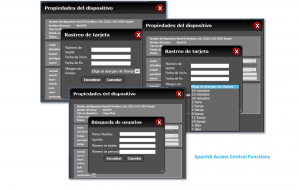Corporate campuses present a unique and ongoing security challenge. Organizations must manage localized, detailed processes in addition to a diverse ecosystem of technologies such as access control, identity management, mass notification, video surveillance, inter-campus communications and business intelligence. Many corporate campuses consist of large groups of close-proximity buildings that host employees as well as sensitive customer and financial data, which can lead to concerns about security tactics. Organizations must monitor a multitude of risks, including insider threats, natural disasters, terror attacks, cyber-attacks and intellectual property theft. To add to this growing data collection and analysis, corporations must also be aware of activities taking place in the surrounding areas near the campus location. In situations where time is of the essence, it is imperative that a potential crisis be quickly recognized so that appropriate responses can immediately be deployed.
Vidsys’ Converged Security and Information Management (CSIM) software platform is equipped to address these needs and more. Our integrated platform allows us to seamlessly incorporate our software with a company’s specific compliance standards to make the organization run more efficiently and securely. Operating through an open architecture platform that uses a browser-based interface to share information, Vidsys creates a common operating picture across security systems, building management systems, and IT systems—all of which are major components to keeping a corporate campus operating smoothly and securely.
The updates included in the newest release of our CSIM software platform, Vidsys Enterprise 2017, are especially relevant for corporate campuses. The capabilities go beyond security and risk management by offering insights that can drive intelligent business decisions.
First, through Virtual Situation Management (VSM), corporations can keep track of their various locations in real-time, as the software is intelligent enough to read specific business “situation” requirements. A situation is created when input data based on specific organizational criteria is flagged as a risk. This could be through video footage or sensors at a corporate campus entry point, monitoring suspicious behavior at a large event, or tracking access to classified areas or data through identity management. The new enhanced situational awareness afforded by these capabilities enables organizations to better manage situations across their enterprise anytime and anywhere. This is a major boon for corporate campuses responsible for managing operations and offices in multiple locations around the globe.
In addition, the Enterprise Data Visualization (EDV) component is particularly compelling, as it pulls in third-party open source data and correlates it to the organization’s internal data points. This means that risk data generated around the customer’s environment can be analyzed to notify organizations of potential impacts on their personnel, resources, facilities and brand. By pulling and correlating data from both open source technology and social media inputs, organizations can monitor unhappy customer or employee fodder via social media and take the appropriate actions to respond. It also allows enterprises to make adjustments at the corporate level to identify and rectify the situation.
Building off of this data, the Enterprise Business Intelligence (EBI) platform allows customers to pull all of this data through a single dashboard to assemble reports of the relevant, correlated data occurring within their organizations. Reporting is flexible and scalable to the end user, thus providing customers the ability to utilize data for resource allocation and budgeting and the support of operations including building management systems and supply-chain systems. For corporate campuses, this could identify problems with workplace and communication issues and flag questionable processes so that businesses can make educated decisions.
As companies expand regionally, nationally, and globally, having a corporate security platform that is flexible, mobile and intelligent will create a strong base for the company’s safety, efficiency, and success.






![Vidsys Enterprise 2020R2: improved video replay controls, auto reporting + more [release notes]](https://vidsys.com/wp-content/uploads/2020/05/Spanish-Access-Control-Functions.png)
